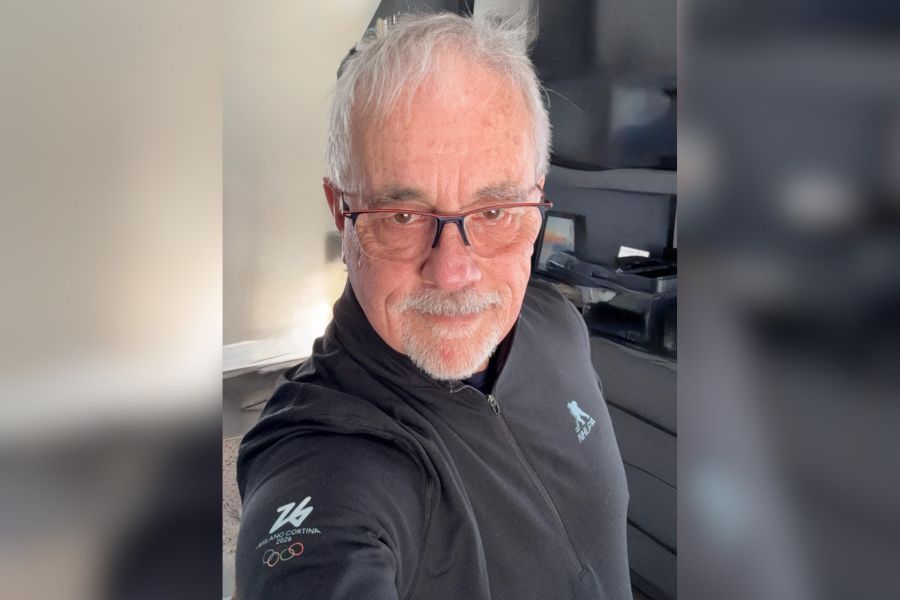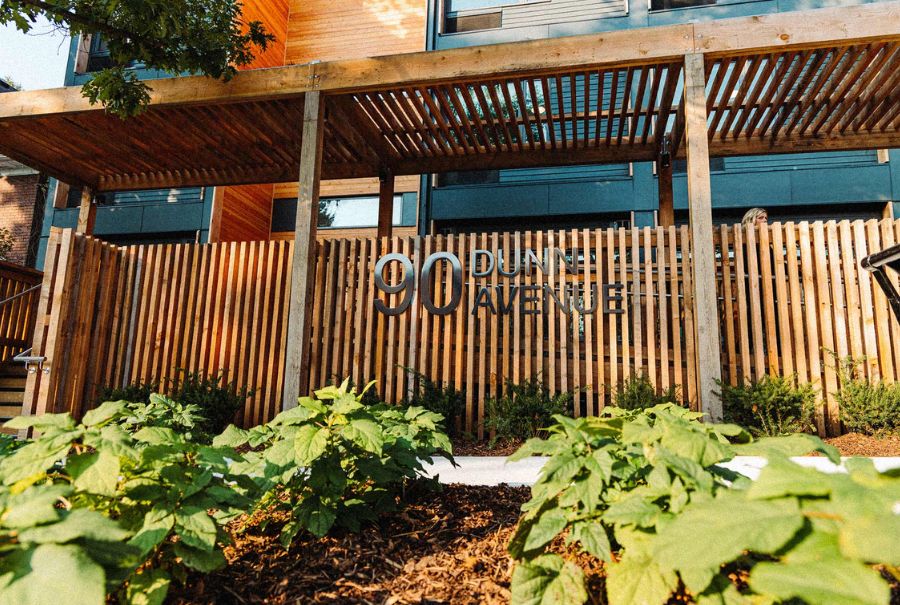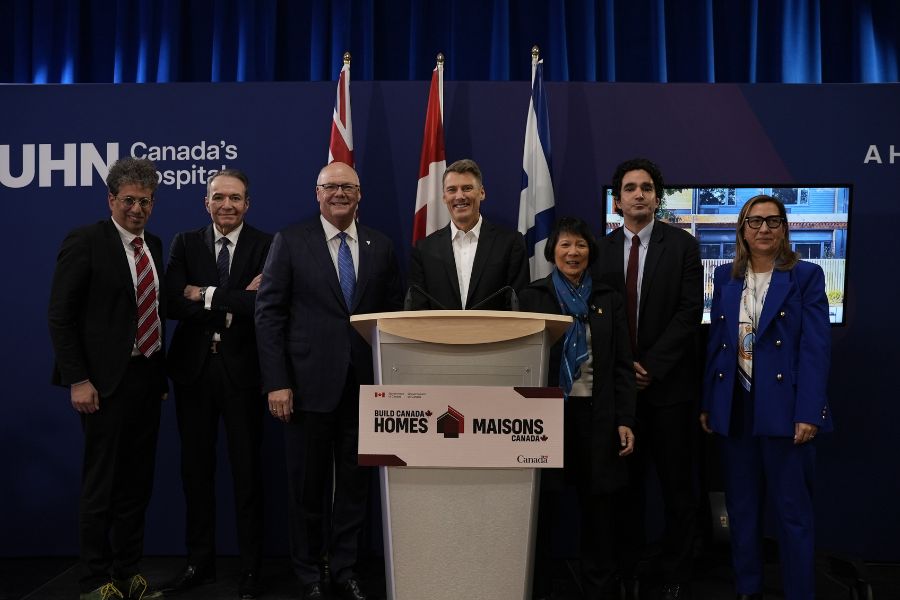Photo by Danielle Scott.
University Health Network (UHN) and the Gattuso Centre for Social Medicine, in partnership with the City of Toronto and United Way Greater Toronto (UWGT), are creating what is believed to be the first-of-its-kind-in-Canada Social Medicine Supportive Housing site in Parkdale, Toronto.
The proposed four-storey modular building at the south parking lot of UHN’s EW Bickle Centre for Complex Continuing Care, will provide 51 people from historically-marginalized groups who are frequent users of hospital services, with accessible, safe, secure and affordable housing. The site is being designed with a unique approach, including strategies to address the social determinants of health – such as housing, food, financial security – and their long-term impacts on individuals’ quality of life.
“We know that our most frequent users of hospital services are those without stable, safe housing and are in need of home-based services. Approximately 230 individuals represent over 15,000 visits to UHN’s Emergency Department’s because they don’t have access to better alternatives,” says Dr. Kevin Smith, President & CEO, UHN.
“This first-in-Canada initiative by UHN, made possible through partnerships with the City of Toronto and United Way Greater Toronto, will make a meaningful difference in the lives of those most in need – a need which has been made even more urgent and apparent as a result of the COVID-19 pandemic. We are grateful to the Government of Canada, the Province of Ontario and the City for these needed investments.”
The UHN-owned and city-leased site will be ready for occupancy around spring 2022. It will serve those exiting or at risk of homelessness, with a focus on seniors, women, Indigenous Peoples and racialized persons.
The support from UHN’s Gattuso Centre for Social Medicine and community partners will allow for integrated supports for residents. They will be connected to a range of services that will consider food security, income security, mental health, career development and other services to be delivered on site. Residents will also be connected to primary care and other health services.
“Homelessness is one of the most important social determinants impacting health outcomes in our city and in Canada. As historical inequities became even more evident during the pandemic, innovative interventions are urgently needed. We are very excited to partner with community organizations, City and United Way Greater Toronto, to launch this project and have it ready to serve the community very soon,” says Dr. Andrew Boozary, Founding Director of the Gattuso Centre for Social Medicine.
“The new modular homes with supports planned for 150 Dunn Ave. are so much more than just a place to live. These are homes within a vibrant and welcoming community that will improve the health and well-being of those who will live there, as well as the surrounding community. Thanks to our strong partnership with the other governments and this very unique partnership with UHN, United Way Greater Toronto and their community partners, we can deliver a new model of care that responds to the unique needs of residents and will make a real difference in their lives. I look forward to opening these new supportive housing units for residents very soon,” says Mayor John Tory.
“To lift people out of poverty, communities need affordable housing and access to social services. These homes with supports are a strong example of the social service sector’s role in community health. Government partners have shown incredible leadership with this investment, made even stronger by working with healthcare, community partners and local residents,” says Daniele Zanotti, President & CEO, United Way Greater Toronto.
Read the City of Toronto news release and the federal government announcement.
About UHN’s Gattuso Centre for Social Medicine
The Social Medicine Program and Gattuso Centre for Social Medicine at University Health Network work alongside people experiencing marginalization, community organizations, UHN clinicians, and the city to address gaps between health and social services and improve health outcomes and experiences for marginalized populations in Toronto.


